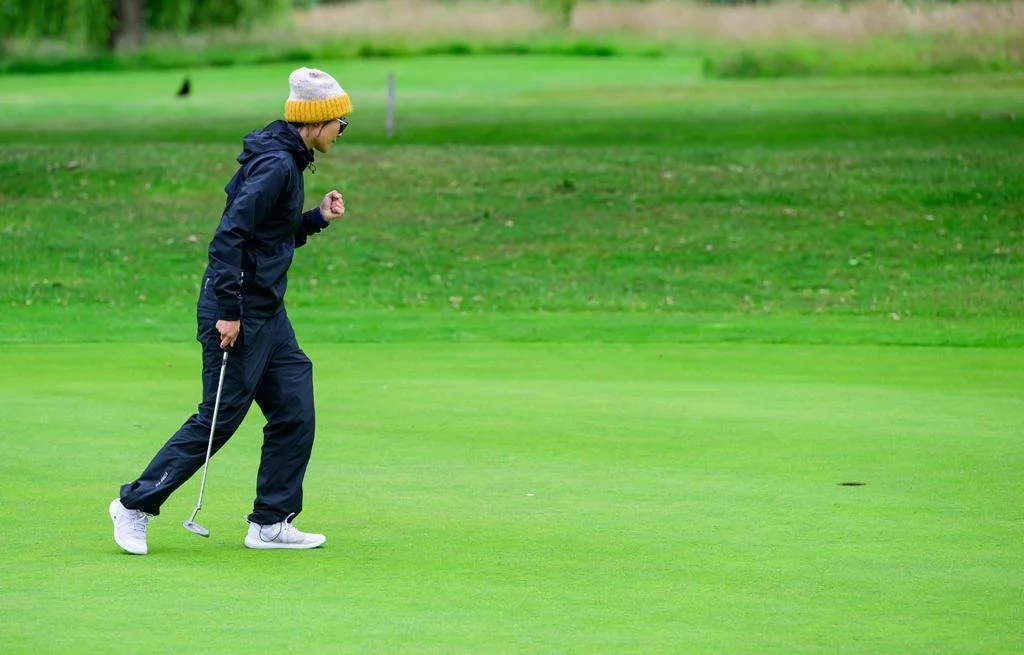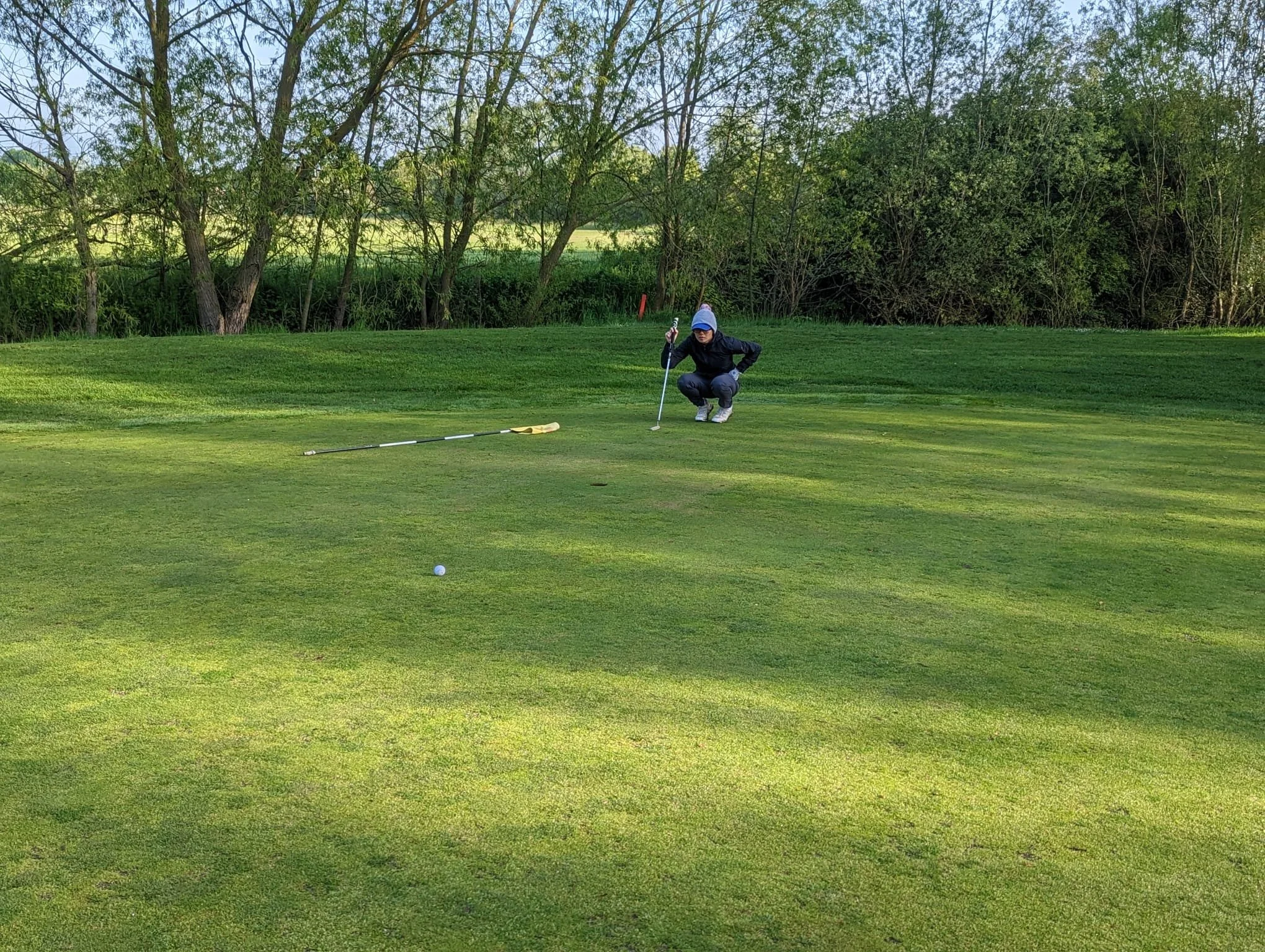Staying the Course in a System That Wasn’t Built for Her: Michelle’s Story
Introduction
Michelle Lau is a world-ranked amateur golfer (ii3), software developer, and proud Autistic woman. Michelle credits the awareness raised by Neurodiverse Sport as a key influence in her decision to pursue a world ranking in golf. It gave her the confidence to push forward, and her story is proof that visibility, representation, and understanding can change lives. Like many Autistic women, Michelle’s diagnosis came later in life—but her passion for sport has been there from the beginning. What makes her journey so powerful isn’t just what she’s achieved on the course—it’s what she’s overcome behind the scenes. This is a story about delayed clarity, quiet resilience, and what it means to finally find your place.
Michelle Lau, World-Ranked Amateur Golfer (ii3)
Context Matters: Where Michelle’s Story Fits In
Stories like Michelle’s are why we do what we do.
Our ultimate goal is to ensure everyone—no matter their neurotype—has a place in sport where they feel both capable and comfortable. For some, that place might be so-called' ‘mainstream’ or able-bodied sport. For others, it might be para sport or Virtus-style competitions (for more information on this topic, read ii3: More Than a Category—A Step Toward Equity in Sport?).
But what’s most important is recognising that not everyone fits neatly into those categories.
Some Autistic people thrive in ‘mainstream’ or non-specialist sport and should be supported to do so. Others, whose challenges are less visible, may still need alternative pathways. True equity in sport means recognising the spectrum of needs—and responding with flexibility, not rigidity.
A Diagnosis Delayed: Michelle’s Long Wait for Clarity
Like many Autistic women, Michelle wasn’t diagnosed until well into adulthood. Growing up, she loved sport—running around constantly as a child, taking part in every activity available. But she also struggled immensely with sensory overload, especially in school. Crowded corridors, bright lights, and noisy classrooms left her emotionally and physically drained.
Despite these challenges, Michelle excelled academically. She graduated with an MSc in Law and Accounting, became a Barrister, later a Chartered Company Secretary, and now works as a Software Developer. But this success masked her exhaustion.
As she describes it, she was “struggling successfully.”
A DIagnosis That Took Six Years
By her early 20s, Michelle and those around her began to suspect she might be Autistic. But Autism in women was barely talked about at the time, and it wasn’t until a mental health crisis in her late 20s—following years of sensory overwhelm, masking, and workplace burnout—that she was finally referred for assessment.
Then came the wait.
Six years.
For six years, Michelle had no formal validation of her needs. No certainty about asking for adjustments. No language to describe her experience. No access to the learning and support most neurodivergent people miss as children but still desperately need in adulthood.
Michelle Lau, World-Ranked Amateur Golfer (ii3)
Finding Balance Through Golf
During those six years, Michelle did everything she could to stay afloat—but the demands of work and life left little room for sport. Her first love, football, became too physically demanding. After repeated injuries, she turned to golf—and found her space.
In 2022, after finally receiving her Autism diagnosis, Michelle registered with EDGA, an organisation that runs disability golf tournaments across Europe. There, she felt seen, supported, and accepted.
Though new to golf, Michelle threw herself into the sport. Inspired by fellow Autistic golfer Erika Malmberg, she began pursuing a world ranking through Virtus. An international sports federation for athletes with intellectual impairment, Virtus created a category for Autistic athletes without intellectual impairment in 2023 (read more about the ii3 category). With support from her coach, Joel Rickard, she qualified earlier this year and has already competed in two tournaments—finishing 4th and 2nd in her category.
A key component of Michelle’s autism is nervous system overload. She’s intelligent and quick-thinking, but like a high-tech computer, she can overheat—leading to a meltdown. When someone has held it together for too long, when masking has drained every last drop of energy, a meltdown isn’t a choice. It’s an inevitable release.
Michelle Lau, World-Ranked Amateur Golfer (ii3)
Behind the Rankings: What It Took to Get There
Michelle’s first tournament wasn’t just a test of skill—it was a mental and emotional marathon.
She was recovering from surgery, preparing for exams, and unexpectedly drawn into a neighbourhood conflict—a trigger that sent her anxiety soaring. “I didn’t want to leave the house—even to go into my own garden,” she said.
By the time she arrived for her practice round, Michelle had already hit a breaking point. She cried in the bathroom before stepping onto the course, struggled with speech, and avoided eye contact with tournament staff. But she played on, balancing on the edge of a meltdown.
Michelle usually experiences these moments in private. But this time, with so much on the line, she chose to finish. On the 18th green, after her final putt, she turned to her friend and caddy Sherrie Nash and broke down in tears.
And still, she finished 4th in the world.
Final Thoughts
Michelle’s story is not just about golf—it’s about what happens when someone is finally allowed to stop hiding and start thriving. From years of “struggling successfully” to competing on an international stage, Michelle is proof that real inclusion goes beyond policy—it happens person to person, club to club, coach to coach.
We hope her journey inspires more athletes to push for what they need, more coaches to believe without bias, and more systems to accommodate difference not as an obstacle, but as an opportunity.
Follow Michelle’s journey through updates on @EDGAgolf and @virtus.sport on Instagram. We will be.
Learn more about EDGA and Virtus Golf: edgagolf.com | virtus.sport
Key Takeaways for Neurodivergent Individuals
Own Your Path
→ Your journey might be longer or less direct—but it’s still valid, and it’s yours to walk.
Success Doesn’t Cancel Out Struggle
→ You can be high-achieving and still need support. That doesn’t make you less—it makes you human.
Find Your Space
→ Whether it’s EDGA, Virtus, or your local club, you deserve to play without masking who you are.
Key Takeaways for Peers, Supporters, and Parents
Believe Without Seeing
→ Sensory overload and emotional exhaustion aren’t always visible—but they’re real.
Support Without Pressure
→ Offer help without strings. Sometimes just being there is what makes the difference.
Understand the Signs
→ Learn about meltdowns and masking to offer empathy instead of confusion.
Key Takeaways for Coaches, Leaders, and Organisations
Inclusion Starts with Listening
→ You don’t need a diagnosis to make a change—if someone asks for adjustments, believe them.
Celebrate, Don’t Idealise
→ Recognise the excellence and the effort—without turning neurodivergence into a performance.
Make Pathways Flexible
→ One-size-fits-all doesn’t work. Adapt routes to allow every athlete a fair shot at success.
This blog post was written by Caragh McMurtry. Subheadings were added by the Neurodiverse Sport team to support readability.



